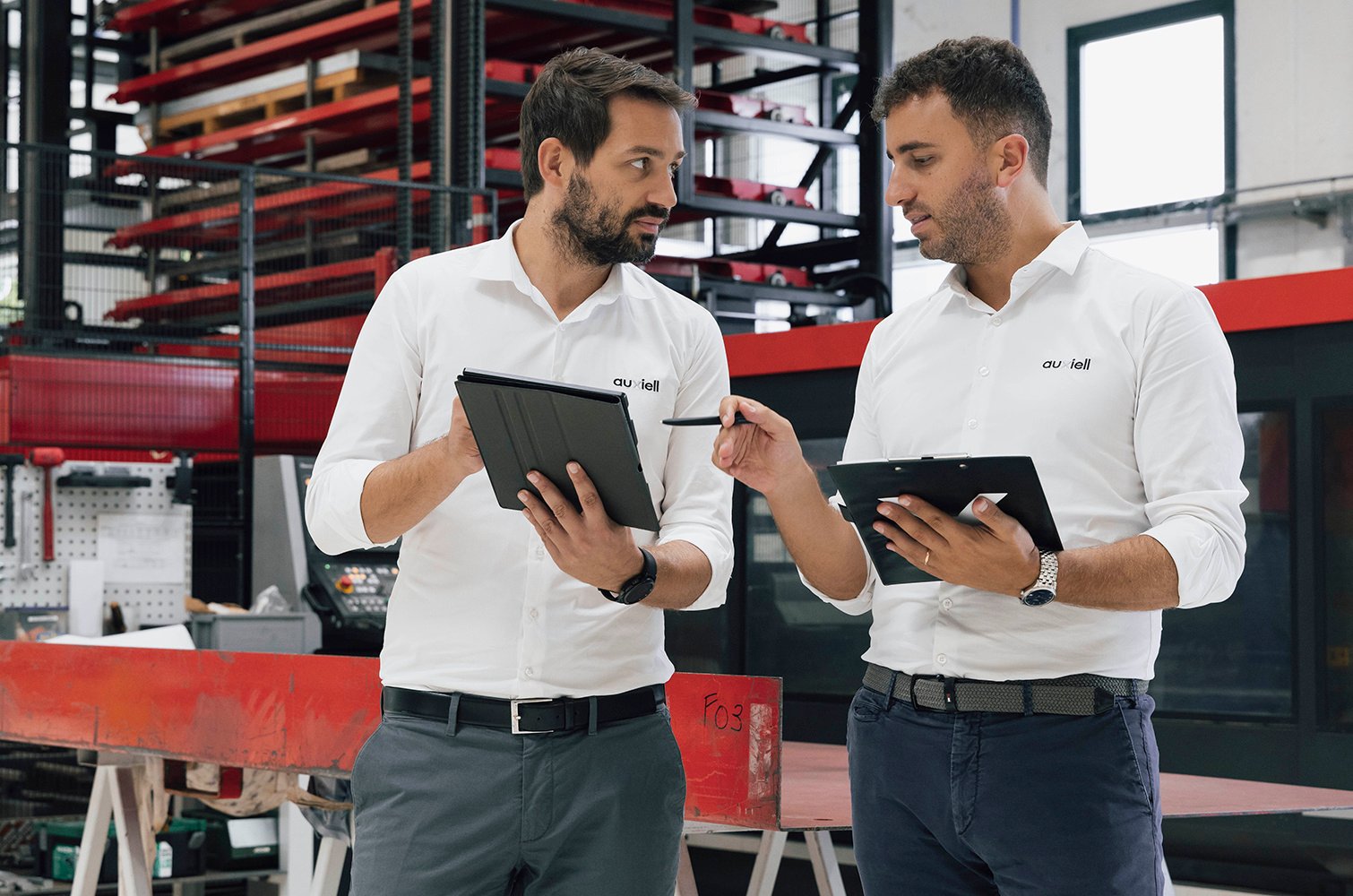The Six Places to Work Manufacturing Roadshow is an initiative we created in collaboration with the teams from euxilia and Great Place To Work Italia to engage with organisations in the manufacturing sector, aiming to inspire and share best practices, process improvement strategies, and exemplary development systems. The tour, which spans Italy from south to north, stops at leading companies where process optimisation and a focus on employee well-being lie at the heart of their positive impact on talent retention. The project consists of six stops, each at a company that can serve as a virtuous example for the surrounding area:

Andriani, an Apulian company recognised as one of the most prominent players in the food innovation sector. La Marzocco, a Made in Italy company that produces espresso coffee machines. NTS, specialising in mould construction and the moulding of plastic, thermoset, and thermoplastic items. Alfa Laval, a leading company in heat exchange, separation, and fluid handling solutions. Aristoncavi, a manufacturer of high-quality Made in Italy speciality electrical cables. Vimec, specialising in design solutions for vertical mobility.
The goal of the Roadshow is to foster a debate that provides stakeholders with practical answers and best practices to strengthen corporate culture and identify tools for performance improvement. Each event opens with a brief introduction to the Roadshow and the host company, followed by insights from key leaders of these exemplary business cases. Additionally, each stage includes a factory tour, giving guests the opportunity to visit production facilities and observe how the company has optimised its processes.

Roadshow Six Places To Work - La Marzocco - Tavola Rotonda

Roadshow Six Places To Work - Aristoncavi - Tavola Rotonda

Francesca Rota, Senior Manager Great Place to Work Italia

Roadshow Six Places To Work - NTS - Factory Tour

Roadshow Six Places To Work - Alfa Laval - Factory Tour

Roadshow Six Places To Work - Andriani - Opening
While many factors influence a company’s growth, one of the most impactful is human capital. In today’s uncertain environment enhancing employee well-being means reducing challenges and ensuring production continuity. If economic considerations alone do not suffice to prove the value of employee-centred company policies, data from Great Place To Work – a company that analyses work environments by measuring employee opinions and experience – shows that the blue-collar workforce is often the most overlooked. Although they make up 15-16% of the workforce, blue-collar employees are a segment of the working population that does not receive the attention they deserve. Especially post-Covid, they experience a significantly different work life compared to white-collar employees, who have benefitted from remote work and other flexible arrangements.
In addition to the cultural changes, processes, and tools introduced during the pandemic, companies are now facing economic and energy crises that impact the availability of labour and, for the first time in many years, even turnover among blue-collar workers. These factors are intertwined with the ongoing digitisation and technological transformation (known as Industry 4.0), which began before the health crisis. This shift has prompted more companies to evaluate both the current and future skills of their personnel, balancing between retraining and external recruitment for new positions.
In this scenario, an increasing number of companies are seeing the strategic value in engaging and motivating their people, particularly in more operational areas where it can be harder to apply soft motivational tools. Yet, listening in factories with a strong presence of production workers presents different difficulties compared to those faced by white-collar workers. Not only are organisation and logistics more complicated, but the levers for enhancing motivation and creating the right engagement also represent a challenge for all companies in the sector.
There are four key focus areas for companies considered excellent by their blue-collar workers:
- Communication and listening: Initiatives include apps that can be downloaded on personal devices, as well as company email addresses available to all workers, including production workers; working groups and task forces to review processes and methods; roadshows with managers from headquarters for listening sessions; and periodic feedback interviews with all workers;
- Welfare: Ranging from bonuses to help preserve purchasing power for lower-income employees or compensate for commuting costs, to increasingly localised and à la carte services tailored to the varying needs of employees and their families;
- Professional development: introducing intermediate coordination roles, training on technological skills and new work tools, job posting systems across different professions or locations, and greater interchangeability of professional roles;
- Process and structural review: driven by digitisation, these organisations involve operational staff (or groups of staff) in revising processes and working methods, emphasising high-value activities and organising themselves with a more agile approach.
This gave rise to the concept of a Roadshow that travels around Italy from south to north, stopping at companies that have demonstrated the ability to listen to the needs of their factory employees and to offer concrete solutions to their needs. Recognising that a positive internal climate is closely tied to improved productivity, companies understand that when revenues and profitability increase, there are more opportunities for investments in areas that drive employee motivation and belonging, such as innovation, work-life balance, and wealth redistribution.


